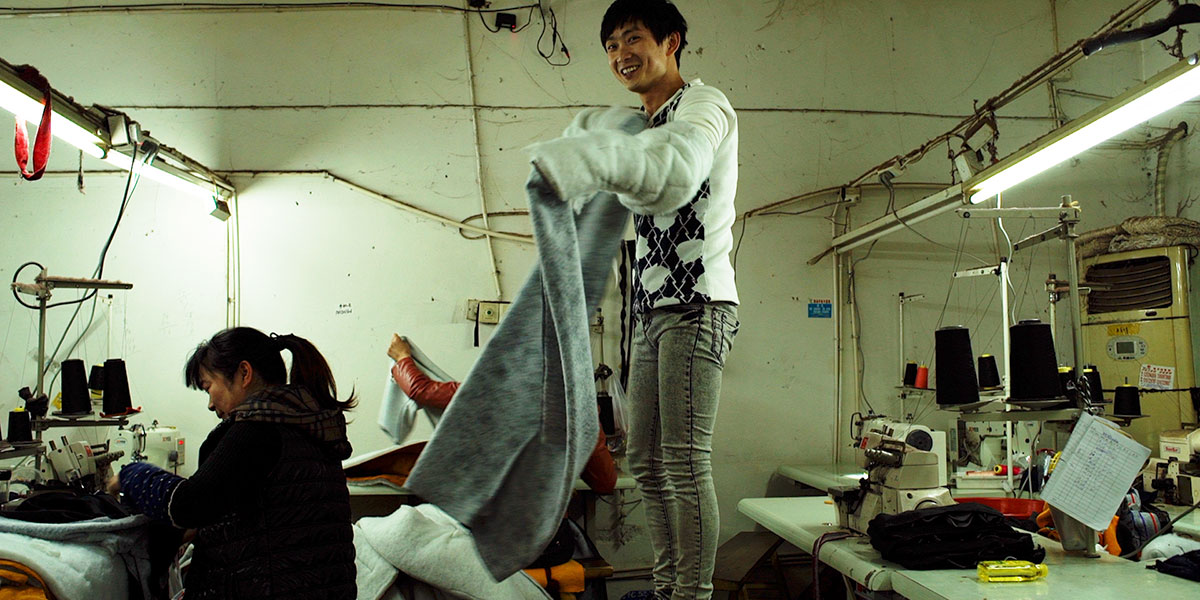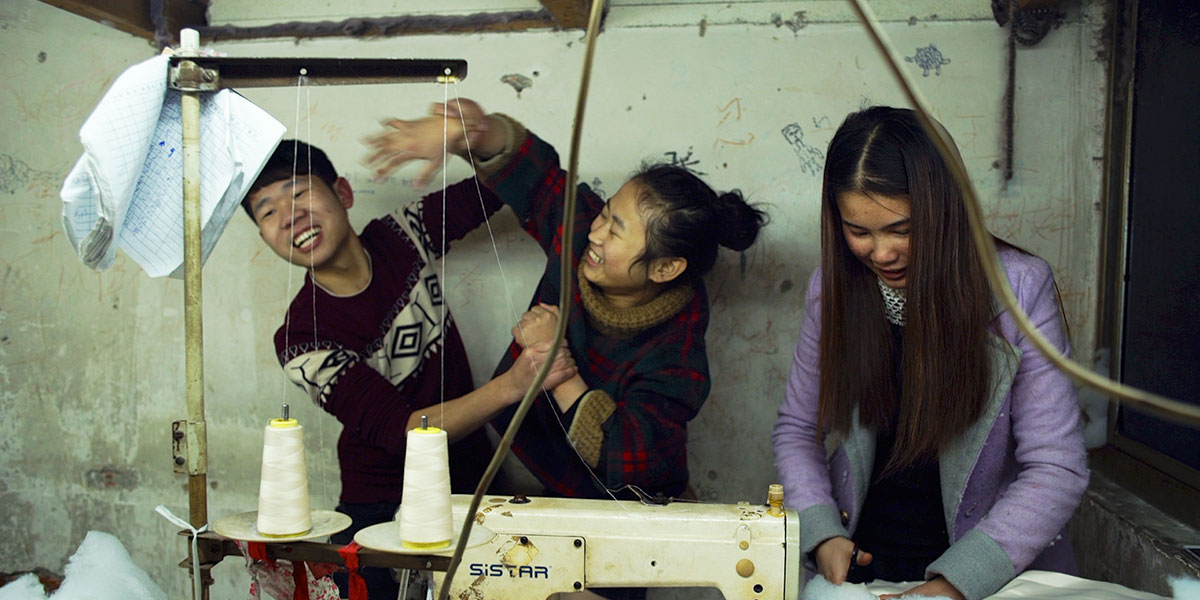|
Review by Sean Boelman
Wang Bing is one of the most acclaimed documentary filmmakers in China, making films that tackle important social issues. His latest, Youth (Spring), should have been an incendiary documentary challenging exploitative institutions, but instead, it ends up feeling too exploitative itself to have the revolutionary impact it clearly desires.
In the documentary, Wang follows a group of young adults who work in the textile workshops of Zhili, China, where they are subjected to severe conditions day in and day out. Wang’s film is meant to criticize the capitalist systems that are exploiting youth laborers, while giving a face and voice to these workers who are being mistreated. While the intent is noble, the execution is mixed. Of course, the most daunting thing for most viewers about Youth (Spring) is its length — with a runtime of over three and a half hours. Yet, the film manages to never be boring, remaining engaging throughout its entirety. Wang’s approach to filming is very up close and personal, with a lingering camera that is meant to make the audience feel like voyeurs to something they shouldn’t be seeing. Unfortunately, for Wang, all that many viewers will be thinking about is the fact that the camera is there. Is the fact that Wang and his crew are documenting the workshops causing the managers to “smile for the camera?” Or is it causing them to push the workers harder to make themselves look “more productive.” Ultimately, we will never know.
No critic, filmmaker, or cinema scholar would tell you that the ethics of documentary filmmaking are black and white. But it’s hard to watch Youth (Spring) without seeing that its ethics are a bit suspect. Wang spent years standing by idly watching this mistreatment of these young adults. Sure, the argument can be made that it is important to call attention to this wrongdoing, but when there’s no consequence for the actions being shown on screen, at what point is the filmmaker just exploiting the subjects’ trauma?
It’s also frustrating that the first slide of the credits is a thank you, not just to the workers depicted in the film, but also the workshop managers. In what world was this ever a good idea? This jarring statement threatens to undermine the entire thesis of the film. How can you, with a straight face, thank the same people your film is designed to condemn? Because of this moral ambiguity when it comes to the portions of the film related to the workshops, Youth (Spring) is perhaps more effective as a portrait of lower-income youth growing up in a patriarchal society. Arguably the most impactful moment of the film is an argument one of the worker’s parents has with the workshop manager about how much time off should be granted for the worker to have an abortion. It’s moments like these that feel really prying and necessary, not those lingering on the mistreatment many already know exists. Youth (Spring) is a documentary that is meant to be uncomfortable, but it’s not uncomfortable for the reasons it hopes to be — it’s uncomfortable because of how frustrating its ethics are. There’s still a lot to like here, but it’s difficult to get past some of its more glaring issues. This is the first in a trilogy of films Wang made about these individuals. Hopefully, in the other two, he treats them with a bit more humanity. Youth (Spring) is screening at the 2023 Toronto International Film Festival, which runs September 7-17 in Toronto, Canada. Rating: 3/5
0 Comments
Leave a Reply. |
Archives
July 2024
Authors
All
|
|
|
disappointment media
Dedicated to unique and diverse perspectives on cinema! |


